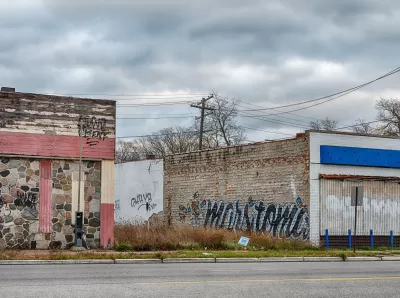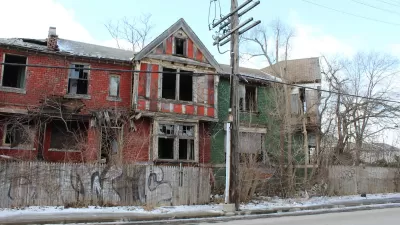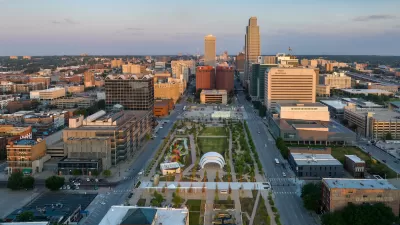Detroit Mayor Mike Duggan proposes hiking property taxes for vacant land and buildings while lowering the rate for occupied homes and businesses in a split tax plan he contends will resolve many of Detroit's blight and high property tax woes.

On Wednesday, Detroit Mayor Mike Duggan proposed hiking the city's property taxes for vacant land and buildings while lowering the rate for occupied homes and businesses in a split tax plan he contends will resolve many of Detroit's blight and high property tax woes.
The proposal, dubbed the Land Value Tax Plan, would increase taxes on land while reducing taxes on homes and structures by an expected 30 percent, or roughly $38 million total. This would apply to every neighborhood in Michigan's largest city, require, no application, and never expire.
If approved by the Michigan Legislature and later by Detroit voters, Duggan said, the plan would provide relief to homeowners who have been struggling under the burden of high taxes, encourage further neighborhood growth and hold land speculators accountable. Duggan laid out his plan Wednesday during an annual address at the Detroit Regional Chamber's Mackinac Policy Conference.
Currently, private owners own roughly 30,000 neglected lots that Duggan on Wednesday described as “cheap lottery tickets” that bet on an increase in land value with no actual investment in the property. The city is forced to cut grass in the lots and remove garbage to spare surrounding neighbors while the property owners pay about $25-30 a year in taxes.
“This is what is driving me nuts,” Duggan said. “In Detroit, blight is rewarded and building is punished.”
Under Duggan's plan, the average homeowner will see a $250 annual tax reduction, according to the mayor's office.
Owners of active businesses and land that is in productive use will also see their tax bills go down, depending on the taxable value of their assets. Currently, vacant residential lots in the city are taxed at an average of $25 annually, according to the mayor's office.
The program, which would be phased in over three years starting in 2025, would on average increase the millage rate on vacant land from 86 to 124 mills and lower the millage rate on a home from 86 to 60 mills, Duggan told The Detroit News.

Planetizen Federal Action Tracker
A weekly monitor of how Trump’s orders and actions are impacting planners and planning in America.

Congressman Proposes Bill to Rename DC Metro “Trump Train”
The Make Autorail Great Again Act would withhold federal funding to the system until the Washington Metropolitan Area Transit Authority (WMATA), rebrands as the Washington Metropolitan Authority for Greater Access (WMAGA).

The Simple Legislative Tool Transforming Vacant Downtowns
In California, Michigan and Georgia, an easy win is bringing dollars — and delight — back to city centers.

The States Losing Rural Delivery Rooms at an Alarming Pace
In some states, as few as 9% of rural hospitals still deliver babies. As a result, rising pre-term births, no adequate pre-term care and harrowing close calls are a growing reality.

The Small South Asian Republic Going all in on EVs
Thanks to one simple policy change less than five years ago, 65% of new cars in this Himalayan country are now electric.

DC Backpedals on Bike Lane Protection, Swaps Barriers for Paint
Citing aesthetic concerns, the city is removing the concrete barriers and flexposts that once separated Arizona Avenue cyclists from motor vehicles.
Urban Design for Planners 1: Software Tools
This six-course series explores essential urban design concepts using open source software and equips planners with the tools they need to participate fully in the urban design process.
Planning for Universal Design
Learn the tools for implementing Universal Design in planning regulations.
Smith Gee Studio
City of Charlotte
City of Camden Redevelopment Agency
City of Astoria
Transportation Research & Education Center (TREC) at Portland State University
US High Speed Rail Association
City of Camden Redevelopment Agency
Municipality of Princeton (NJ)





























